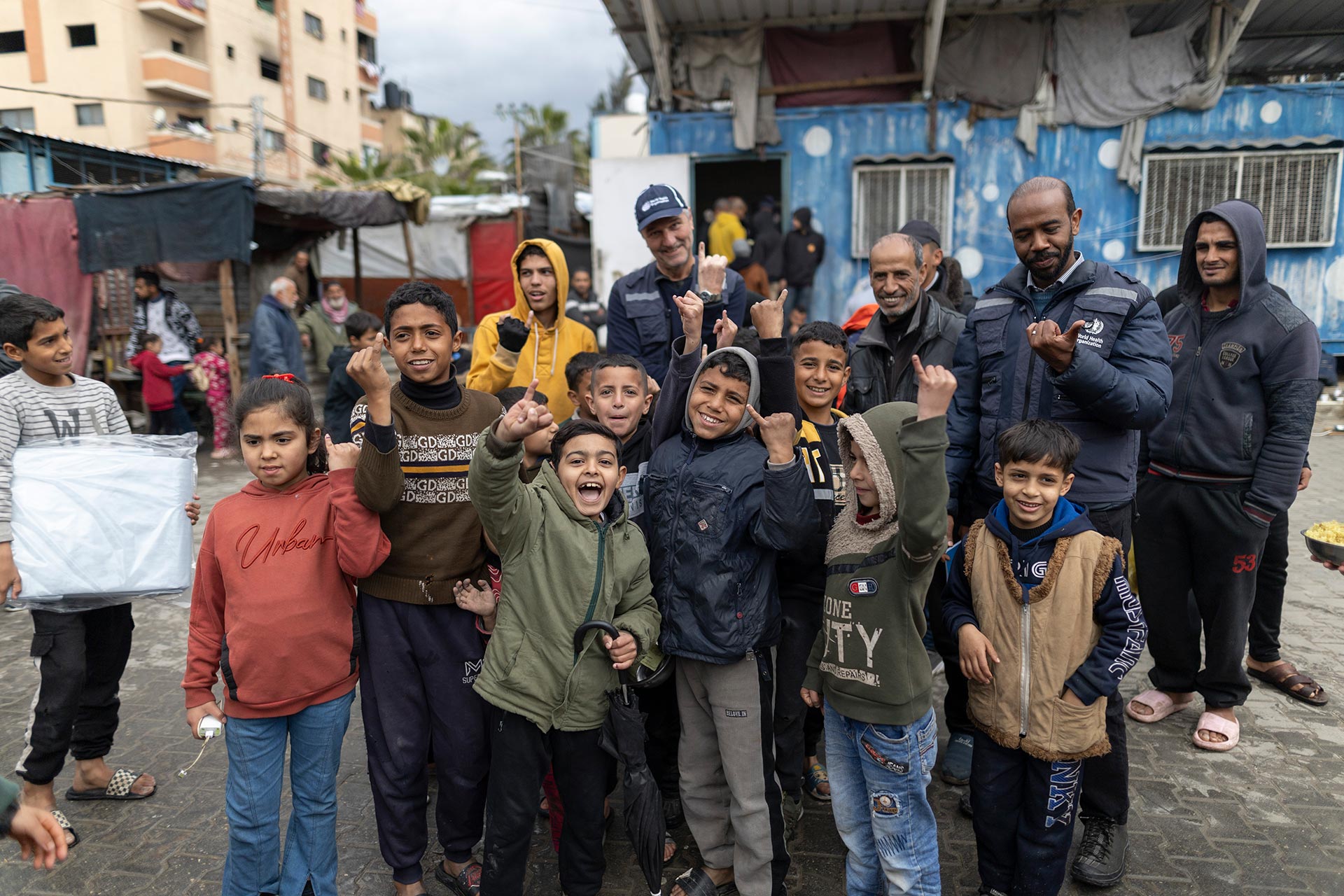
A little girl giggles as she gets her finger marked with blue marker pen in front of a full classroom.
Eight-year old Pashton has joined her mother Shaima Ebrahimi in a training for polio vaccination campaign monitors a few days before a national campaign starts in Afghanistan.

Standing next to Pashton, Dr Farzia Sadat explains to her students how a blue marker is used properly, so that a mark stays on the children’s fingers. A blue fingertip is a confirmation that the child has been vaccinated against poliovirus.
This week, around 10 million children will receive two drops of polio and the blue mark. But first, polio workers need to be trained.
Six long years at home
Dr Farzia has been working for the polio eradication initiative for two years. Before each campaign, she trains the campaign staff and during the campaign she coordinates to the quality of work over 1,000 people.
On the first day of the campaign she gets up early, as she needs to get to a local mosque to meet vaccinators who are picking up their equipment for the day: blue vaccine carrier boxes with vials, pens, printed campaign plans and so on.

At the mosque door, she takes her shoes off and steps in to greet one of her teams.
With four children and a busy career, she does not have much free time at her hands, but she would not have it any other way. “It was my dream to become a doctor from an early age, and my parents supported me. I was a bright kid and my parents saw my potential.”
Before starting to work in the polio eradication programme, she worked as a medical doctor and in different public health programmes in Herat. “I wanted to start working in public health to help many people instead of just one patient at a time.”
She doesn’t take her success for granted, as it was not always certain that she would be able to work at all.
“I started my studies in 1992, but a few years later, I was forced out of university because of the restrictions imposed on women. I stayed home for six long years,” she remembers.
She kept herself busy by volunteering in a local health facility pharmacy, doing tailoring work at home and helping at a local health centre. Although women were not allowed to study or work, they could help in health centres, as male doctors were not allowed to treat female patients.
Women were finally admitted back to universities in 2001. “All of my college classmates were so happy to start studying again”.
When she was allowed to continue her studies, she returned with a newfound energy and went on to graduate with top grades despite having a young daughter to care for.
Helping women enter the workforce
At the end of the first day of the campaign, the teams gather in a local health centre to debrief.
The monitors have walked around the city following vaccinators and checking whether the vaccine vials have been handled correctly, fingers marked properly, and numbers of vaccinated children marked accurately on tally sheets.
At the evening meeting, everyone gets a chance to tell management about any problems.
A team of two young women reports that they have been harassed on the streets, and Dr Farzia takes note.
“Every campaign we have one or two cases of harassment,” she sighs. “We have security in place to help the women, if something should happen.”
In Afghanistan, it is still relatively rare for women to work. The polio eradication initiative is accountable for possibly the largest female workforce in Afghanistan, employing thousands of front line workers in every campaign.
Dr Farzia hopes to hire more women. In vaccination campaigns, women have one overwhelming advantage over men: they can enter homes. This makes it easier for newborn and sleeping children to be vaccinated, and fewer children are missed in each campaign. “It improves our programme results, but it is not so easy to find more women. In some areas, people have never seen women work outside their homes.”
For the future, she hopes that life will become easier for Afghan women again. And for now, she will continue working for that goal.




